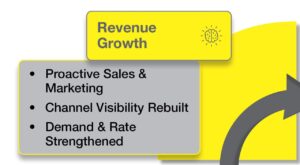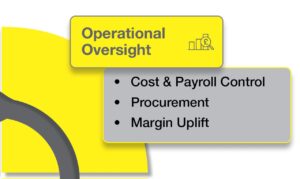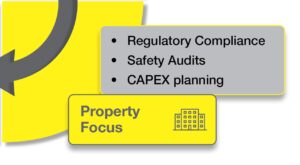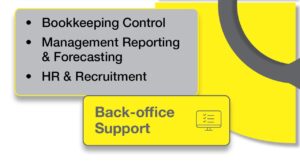Fully Resourced Hotel Turnaround That Restores Control, Credibility and Value
Fully Resourced Hotel Turnaround
The hotel transactional market is starting to move again, creating opportunities for owners to leverage expert turnaround plans to maximise value and increase options - Proof is the new leverage in hotel transactions | Hospitality Investor.
Underperforming hotels don’t need theory — they need decisive action. Assured Hotels delivers a fully resourced turnaround solution that unites commercial strategy, operational discipline, and financial control to restore performance at pace. Our independent, multi‑disciplinary interventions stabilise trading, strengthen reporting, and give stakeholders the clarity required to support refinance, restructuring, or exit.
Recent case studies show how our integrated approach — spanning revenue management, sales and marketing, operational oversight, cost control, and back‑office governance — provides the structure and commercial engine required to improve owner options.
Assured Hotels are also uniquely positioned to bring capital‑backed solutions, partnering with trusted finance providers to fund essential investment and catch‑up projects that unlock trading performance and sustain value growth.
Revenue Management: Rebuilding Visibility, Demand and Rate Strength
A 31‑bedroom hotel in administration suffered from weak pricing, poor digital visibility, and over‑reliance on leisure trade. Assured Hotels implemented a focused revenue strategy:
- Improved OTA visibility through structured room types, refreshed photography, and clearer rate plans.
- Introduced dynamic pricing with demand‑driven models and daily reviews.
- Expanded distribution, including GDS onboarding and renewed corporate agreements.
- Strengthened direct bookings by clarifying offers and streamlining user journeys.
- Developed segmented products for corporate and leisure markets.
This repositioned the hotel to attract higher‑value guests, strengthening occupancy and rates.
Sales & Marketing: Putting the Hotel Back on the Map
With no active sales plan, corporate accounts lacked awareness and MICE planners had no visibility of facilities. Assured Hotels delivered:
- Audit of lapsed and potential accounts
- Re‑established preferred agreements
- Targeted outreach to MICE planners
- Campaigns to drive business and leisure demand
- Improved rate parity and booking pathways
Outcome: The hotel regained visibility, credibility, and market share across key segments, driving rapid topline growth.
Operational Oversight: Cost Control and Efficiency
A 150‑bed West Country hotel lacked systems to control payroll, food and beverage cost, and purchasing. A system review introduced:
- Forecast‑aligned payroll models
- Purchase order controls and supplier nominations
- Menu and pricing reviews
- Regular stock takes and variance checks
Results included payroll aligned to benchmarks, stabilised cost of sales, improved cash margin, and increased profitability without compromising guest experience.
Property Management Expertise
For an 80‑bed independent hotel on the south coast, we agreed a comprehensive property‑management approach that prioritised asset improvements which had been neglected and long‑term commercial resilience. Our team supported on site management to strengthen the hotel’s compliance position, tightened safety standards, and introduced a structured programme of planned investment to maximise revenue growth.
Alongside day‑to‑day oversight, AH then oversaw all CAPEX projects designed to an agreed ROI. Where these critical works required additional funding to maintain momentum, AH was also able to introduce capital for priority projects, ensuring the hotel could continue trading confidently while enhancing its commercial potential
Strengthening Kitchen Management
An internal audit score of 44% highlighted weak compliance and food safety practices. Targeted training, improved documentation, reorganised storage, and monthly audits quickly improved scores and restored safe trading conditions.
Back‑Office Support: Financial Control and Governance
For a remote estate in the far North, Assured Hotels provided bookkeeping, management accounts, forecasting, HR support, and capex oversight — ensuring clear reporting, achievable projections, and confident decision‑making for owners and lenders.
Conclusion
A hotel turnaround succeeds when commercial focus, operational discipline, and financial control move in lockstep. These case studies show how a fully resourced approach can quickly restore stability and rebuild performance. By combining hands‑on leadership with clear reporting and achievable forecasts, this model helps owners and lenders regain confidence, protect asset value, and set a clear path toward sustainable profitability.
Please click here to book a meeting, email mgriffin@assuredhotels.co.uk or call 0203 916 5658.
UK Hotel Sector: Navigating Winter Challenges and Creating Strategic Options
The UK hotel sector remains resilient but faces significant challenges during the current Q1 seasonal trough. Rising costs, volatile revenues, and legacy financial pressures are creating strain, particularly for smaller operators. Immediate priorities include robust forecasting, cashflow management, and leveraging third-party expertise to reduce costs and improve efficiency. Strategic options such as outsourcing, turnaround planning, and positioning for acquisition or exit will help businesses navigate winter challenges and prepare for recovery.
UK Hotel Sector: Navigating Winter Challenges and Creating Strategic Options
The UK hotel sector has demonstrated resilience over the past five years, weathering enforced lockdowns and benefiting from government interventions and unexpected boosts such as the staycation boom. Hotels remain a cornerstone of the UK economy, contributing over £90 billion annually and ranking among the top five employers nationwide. However, as we move into 2026, the industry faces a new set of pressures—particularly during the winter low season, when revenues traditionally dip.
Current Landscape and Emerging Pressures
While insolvency rates have remained broadly flat compared to 2019, signs of distress are now evident, especially among small privately owned groups and standalone assets with conventional bank loans. Covenant breaches ignored during the pandemic are resurfacing, and branded or franchised operations are not immune.
Key challenges include:
- Inflationary cost increases across supply chains, despite slowing headline inflation.
- Rising payroll costs, driven by minimum wage adjustments and national insurance changes.
- Volatile revenues and weak consumer spending, limiting pricing flexibility.
- Hotels returning from government contracts, creating sudden competition and diluting demand.
- Built-up arrears and legacy losses, with financial tests reintroduced by lenders.
- High loan maturities over the next 18 months, coinciding with tighter refinancing criteria.
The pandemic-era patience from funders is ending. Businesses with underinvestment or sustained losses will find refinancing harder, as both incumbent and alternative lenders adopt stricter viability metrics.
Seasonality: A Short-Term Opportunity
We are now in Q1 and the seasonal trough, which makes proactive planning critical. While revenues are at their lowest, this period should be used to implement robust forecasting, reporting, and cashflow management to prepare for the inevitable challenges ahead. Acting now ensures readiness for the spring and summer uplift, which can provide breathing space for strategic decisions.
Strategic Solutions for Winter and Beyond
To protect stakeholder value and nationwide employment, proactive measures are essential:
- Engage Specialist Asset Managers
- Experts in distressed hotel turnaround can assess viability and implement trading or closure plans.
- Outsourcing finance, payroll, and HR functions can cut costs by up to 50%, while introducing efficiency and reducing emotional decision-making.
- Leverage Third-Party Expertise
- Broader service capabilities without long-term payroll commitments.
- Immediate improvements in operational disciplines—from sales and marketing to compliance.
- Position for Acquisition or Exit
-
- Appetite from new acquirers remains strong.
- Preparing for a medium-term exit preserves value and reassures funders.
- Clear timelines and objectives create optionality and buy time.
The Bottom Line
The next 12 months will test the sector’s adaptability. Acting during this seasonal trough is essential to mitigate winter challenges and prepare for recovery. Those who engage funders early, tighten forecasts, outsource non-core functions, and plan for strategic exits will not only survive but create options for growth in a competitive market.
Assured Hotels – Full Lifecycle Hotel Partner
Founded in 2008, Assured Hotels is a trusted advisor to owners and stakeholders throughout a hotel's lifecycle - from acquisition, growth, turnaround, and eventual exit.
Over the past 15 years, we have successfully worked with over 350 clients across all areas of the UK, from large, branded hotel groups to small independent family-owned businesses with only a handful of rooms.
Assured Hotels Proposition
We deliver a full lifecycle hotel partnership proposition, with our services designed to allow us to become involved at any stage. Offering complete flexibility in our engagement. our core services include:
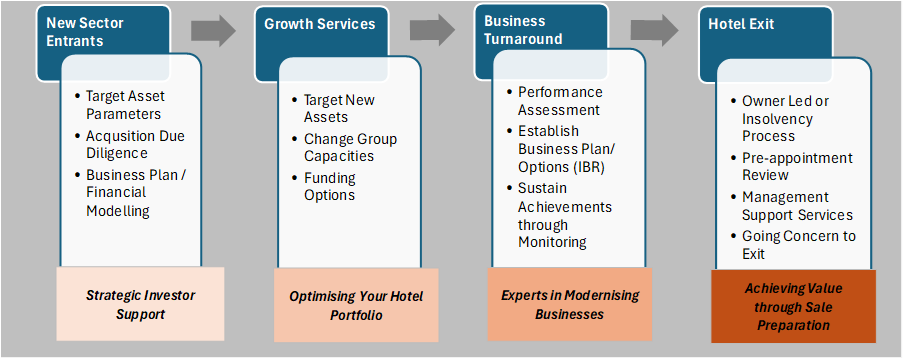
Our experience is demonstrated in various case studies on our website - Hotel Projects Portfolio | Assured Hotels
Solution Based Approach
The sector has been through a lot of challenges in the past 5 years, risks that existed before March 2020 were artificially overcome during the pandemic, and we now face more difficult period, where a retracting economy with rising costs against falling incomes is a reality. There are clear diverging fortunes where some city locations and up-scale markets have exceeded 2019 KPI’s compared to many regions where RevPAR is still behind, so local unit level pressures while varied will be location specific.
Despite volatile trading funding options are now improving, although the cost of debt remains high. Assured Hotels approach cases with an emphasis on sustainable solutions through an initial no obligation assessment:
Risks/ threats will include:
- Revenue regression, regional differences, staycation unattractive.
- Market mix - Corporate slow & leisure demand low.
- Margin/ cash pressures, increased costs, labour and debt.
- CAPEX spend, refurbishment and compliance “on hold”.
- Director/ operator fatigue, often in the business day to day.
- Market value, trading uncertain & constrained decisions.
Solutions could include:
- Management support, options to introduce interim services.
- Stress test financial models, 3rd party cash flow perspective.
- Potential for refinance / funding options.
- Restructure management, outsource back office.
- Rationalisation of portfolio, disposal of non-core assets.
- Planned approach to exit, value preservation.
Our Team of Experts - Click Here
Our people set us apart. We are each expert in our given field with experience in finance, business management, hotel operation, revenue management, PR, sales and marketing, procurement, human resources and law, all coming together to provide you with an outstanding resource to turn around, develop and progress your business.
Please click here to book a meeting, email mgriffin@assuredhotels.co.uk or call 0203 916 5658.
Hotel Due Diligence Checklist: What Investors Need to Know
Investing in a hotel can be a lucrative opportunity, but success often hinges on thorough preparation. Due diligence is an essential process that provides investors with the insights they need to make informed decisions, ensuring every aspect of the hotel meets financial, operational, and strategic objectives. At Assured Hotels, we understand the complexities of hotel investments and have compiled a comprehensive checklist to guide you through the due diligence process.
1. Financial Analysis
One of the first steps in hotel due diligence is a detailed financial review. This includes:
- Profit and Loss Statements: Analyse historical performance and trends.
- Cash Flow Analysis: Understand the revenue streams and expenditure patterns.
- Debt and Liabilities: Evaluate any outstanding debts or financial obligations.
- Capital Expenditure Requirements: Identify potential renovation or maintenance costs.
A deep dive into these elements ensures the financial health of the hotel aligns with your investment goals.
2. Operational Review
Operational efficiency plays a significant role in a hotel's profitability and reputation. Key areas to assess include:
- Staffing Levels and Costs: Ensure the hotel is neither overstaffed nor understaffed.
- Standard Operating Procedures (SOPs): Evaluate the processes in place to maintain consistency and quality.
- Guest Satisfaction Metrics: Look at online reviews and guest feedback to gauge service standards.
- Maintenance and Housekeeping Standards: Confirm the property is well-maintained and meets brand or operational standards.
3. Market Positioning and Competitor Analysis
Understanding where the hotel stands in the market is crucial for long-term success. Consider the following:
- Market Demand: Analyse the demand for hotels in the area, including seasonal trends.
- Competitor Performance: Benchmark the hotel against similar properties in the region.
- Unique Selling Points (USPs): Identify what makes the hotel stand out to guests.
- ADR and Occupancy Rates: Compare the Average Daily Rate (ADR) and occupancy figures to market averages.
4. Legal and Compliance Review
Ensuring the hotel operates within legal frameworks is non-negotiable. Your due diligence should include:
- Ownership and Title Deeds: Confirm legal ownership of the property.
- Licences and Permits: Verify that all required licences, such as health and safety and liquor licences, are up-to-date.
- Employment Contracts: Ensure compliance with local labour laws and regulations.
- Litigation History: Check for any ongoing or past legal disputes involving the hotel.
5. Property and Infrastructure Assessment
The physical condition of the hotel directly impacts its value and guest experience. Key areas to examine include:
- Building Structure: Conduct a structural survey to identify any issues.
- Rooms and Amenities: Assess the condition of guest rooms, restaurants, and recreational facilities.
- Energy Efficiency: Evaluate utility systems and energy-saving measures.
- Safety Standards: Ensure compliance with fire safety, security, and other critical safety regulations.
6. Technology and Systems
In today’s digital age, the technology infrastructure of a hotel can significantly affect operations and guest satisfaction. Review the following:
- Property Management System (PMS): Ensure the system supports seamless operations.
- Online Booking Platforms: Assess the integration of the hotel’s booking system with major online travel agents (OTAs).
- Cybersecurity Measures: Verify data protection and cybersecurity protocols.
- Wi-Fi Infrastructure: Confirm reliable and high-speed connectivity across the property.
7. Brand and Marketing Strategies
A strong brand and effective marketing can drive revenue growth. Consider:
- Brand Reputation: Evaluate the hotel’s brand image and presence in the market.
- Loyalty Programmes: Check for existing customer retention strategies.
- Marketing Campaigns: Review current and past promotional efforts.
Partnering with Experts
Navigating hotel due diligence can be complex, but the right guidance makes all the difference. At Assured Hotels, we specialise in providing bespoke consultancy services that simplify the process for investors. Our expert team ensures that every aspect of the investment is meticulously analysed, giving you the confidence to move forward.
Get in touch with us today to learn how we can support your hotel investment journey.
The Asset Manager's Guide to Successful Hotel Acquisition or Disposal
In today’s competitive hospitality industry, acquiring or disposing of a hotel property is a significant financial and strategic decision. With the right approach and expert insight, asset managers can maximise value and ensure a smooth transition. Here’s a guide to navigating the complexities of hotel acquisitions and disposals, highlighting the key factors for success.
1. Conduct a Thorough Market Analysis
The first step in any hotel acquisition or disposal is understanding the market. For acquisitions, this involves identifying locations with growth potential, analysing demand trends, and evaluating competitors. For disposals, knowing the current market conditions ensures that your property is priced appropriately and positioned to attract serious buyers.
Market data, such as RevPAR (Revenue Per Available Room) and ADR (Average Daily Rate), provide critical insights into the potential value of a property.
2. Perform Detailed Financial Due Diligence
Whether buying or selling, financial due diligence is essential. Asset managers should scrutinise financial statements, profit and loss accounts, and operational expenses. For acquisitions, this ensures the property aligns with investment goals. For disposals, it’s important to present accurate financial records to instil buyer confidence.
Consider hiring third-party professionals for valuations and audits to gain an unbiased perspective on the property’s worth.
3. Assess the Property’s Physical Condition
A hotel’s physical state plays a critical role in determining its value. Before purchasing, asset managers must commission structural surveys and identify any maintenance or refurbishment costs. For sellers, addressing issues in advance can enhance the property’s appeal and justify the asking price.
Investments in upgrades, such as modernised guest rooms or energy-efficient systems, can significantly increase a property’s market value.
4. Understand Legal and Regulatory Considerations
The hospitality industry is subject to various regulations, including zoning laws, health and safety standards, and employment laws. Before acquiring a hotel, ensure compliance with local regulations to avoid unforeseen legal issues. When selling, it’s equally important to provide all necessary documentation, including licences, permits, and operating agreements, to facilitate a smooth transaction.
Collaborating with a legal expert who specialises in hospitality can save time and reduce risks during the process.
5. Evaluate Brand and Operational Performance
For acquisitions, consider whether the property’s current brand aligns with your portfolio’s strategic objectives. If not, rebranding or franchising opportunities might be worth exploring. Assessing the hotel’s operational performance, including guest satisfaction scores and online reviews, will also provide insight into its reputation and revenue potential.
For disposals, strengthening the property’s operational performance and brand presence before sale can attract more buyers and boost its market value.
6. Plan for Integration or Exit
If you’re acquiring a hotel, have a robust plan for integrating it into your existing portfolio. This includes staff training, operational adjustments, and aligning the property with your brand standards. For disposals, ensure the handover process is seamless by preparing transition plans and offering support to the new owner where necessary.
7. Engage Industry Experts
Acquiring or disposing of a hotel is a complex process that requires expertise in finance, legal matters, and hospitality operations. Partnering with professional consultants, brokers, and asset management firms can make the process more efficient and maximise returns.
Their industry connections and market knowledge can be invaluable in finding the right opportunities or buyers.
8. Timing is Everything
In the hotel industry, timing can make or break a deal. Acquisitions are most advantageous during periods of market growth or recovery, while disposals should be timed when market conditions are favourable. Asset managers must stay updated on economic trends, seasonal demand fluctuations, and industry forecasts to identify the right moment to act.
9. Consider Environmental, Social, and Governance (ESG) Factors
Sustainability and ethical considerations are becoming increasingly important to investors and guests alike. Hotels with strong ESG credentials often command higher valuations. For acquisitions, look for properties with energy-efficient systems or a sustainable business model. For disposals, implementing green initiatives can enhance the property’s attractiveness.
10. Communicate Clearly with Stakeholders
Effective communication is vital throughout the acquisition or disposal process. Keep stakeholders, including investors, employees, and partners, informed about key developments. Transparency builds trust and ensures alignment with your strategic goals.
Conclusion
Successful hotel acquisition or disposal requires meticulous planning, market insight, and expert execution. By following these steps, asset managers can navigate the complexities of the process, ensuring optimal outcomes for all stakeholders. Whether you’re expanding your portfolio or divesting a property, a strategic approach will help you achieve your financial and operational objectives.
Need professional assistance? Partner with a trusted hotel asset management firm, such as Assured Hotels, to guide you through every stage of your acquisition or disposal journey.
The Role of Technology in Modern Hotel Management
In today’s fast-paced hospitality industry, technology has become a cornerstone for efficient hotel management and enhanced guest experiences. From streamlining operations to personalising services, modern hotels are leveraging innovative solutions to stay ahead in a competitive market. At Assured Hotels, we understand the importance of integrating cutting-edge technology to elevate both operational efficiency and guest satisfaction. Here’s a closer look at how technology is reshaping the landscape of hotel management.
1. Streamlining Operations with Hotel Management Software
Technology has revolutionised back-end operations, making processes more seamless and efficient.
- Property Management Systems (PMS): A PMS integrates reservations, check-ins, housekeeping, and billing into one platform, reducing errors and saving time.
- Revenue Management Tools: Advanced analytics help hotels optimise pricing strategies based on demand, ensuring maximum profitability.
- Task Automation: Automating routine tasks like staff scheduling and inventory management allows hoteliers to focus on strategic priorities.
2. Enhancing the Guest Experience
Technology is central to meeting the expectations of tech-savvy guests who value convenience and personalisation.
- Mobile Check-Ins and Keyless Entry: Guests can skip the front desk and access their rooms using mobile apps, creating a seamless arrival experience.
- Smart Room Technology: Features like voice-activated controls, customisable lighting, and temperature settings offer guests greater control over their environment.
- Guest Feedback Platforms: Digital surveys and review platforms allow real-time feedback, enabling hotels to address issues promptly.
3. Personalising Services with Data and AI
Personalisation has become a defining factor in modern hospitality, and technology plays a crucial role in delivering tailored experiences.
- Customer Relationship Management (CRM) Systems: These tools store guest preferences, enabling personalised recommendations and targeted marketing.
- Artificial Intelligence (AI): AI-powered chatbots handle guest inquiries, provide 24/7 support, and suggest services based on individual needs.
- Dynamic Pricing: AI algorithms analyse market trends and adjust room rates dynamically to match demand, optimising revenue.
4. Boosting Marketing and Online Visibility
Digital marketing tools and platforms are vital for attracting and retaining guests in a competitive marketplace.
- Search Engine Optimisation (SEO): Optimising websites ensures higher visibility in search results, driving direct bookings.
- Social Media Integration: Hotels can engage with guests on platforms like Instagram and Facebook to showcase their offerings and build brand loyalty.
- Booking Engines: User-friendly online booking systems simplify the reservation process and encourage direct bookings.
5. Supporting Sustainable Practices
Technology enables hotels to adopt eco-friendly initiatives, appealing to environmentally conscious travellers.
- Energy Management Systems: Smart systems monitor and optimise energy usage, reducing waste and operational costs.
- Water Conservation Technology: Tools like low-flow faucets and automated water monitoring contribute to sustainability efforts.
- Digital Keycards and Paperless Check-Ins: Reducing reliance on physical resources aligns with green practices.
6. Enhancing Security and Data Protection
The safety of guests and their information is a top priority for hotels.
- Cloud-Based Systems: Secure cloud storage protects sensitive data from breaches and ensures seamless access.
- Contactless Payments: Secure payment gateways reduce the risk of fraud while offering guests a convenient transaction experience.
- Surveillance and Access Control: Advanced security systems safeguard both guests and property.
7. Adapting to Industry Trends
Technology empowers hotels to respond to evolving market trends and guest expectations.
- Hybrid Events: Advanced audiovisual setups enable hotels to host hybrid events, combining in-person and virtual participation.
- Wellness Tech: From in-room meditation apps to virtual fitness sessions, hotels are integrating wellness technology to cater to health-conscious guests.
- Sustainability Metrics: Software solutions track and report sustainability metrics, helping hotels align with green certifications.
Why Technology Matters at Assured Hotels
At Assured Hotels, we believe that technology is not just an add-on but a vital part of modern hotel management. By integrating innovative solutions into daily operations, we help hotels deliver exceptional service, increase efficiency, and stay competitive in an ever-changing industry.
Our team specialises in implementing the latest technology to optimise revenue, streamline processes, and elevate the guest experience. Whether it’s deploying advanced management software or leveraging AI for personalisation, we ensure your hotel is equipped for success.
Embrace the Future of Hospitality
The role of technology in hotel management is undeniable. From enhancing guest experiences to driving sustainability, tech solutions are shaping the future of hospitality. Partner with Assured Hotels to unlock the full potential of technology for your property and stay ahead of the curve.
Contact us today to learn how we can help your hotel embrace innovation and achieve operational excellence.
Key Trends Shaping Hotel Development and Refurbishment in the UK
The UK hospitality industry is ever-evolving, driven by shifting guest expectations, technological advancements, and changing market dynamics. For hotel owners and operators, staying ahead of these trends is crucial to maintaining competitiveness and ensuring guest satisfaction. At Assured Hotels, we have a proven track record of managing hotel developments and refurbishments that deliver results, enabling our clients to adapt to these dynamic trends. Here’s a look at the key trends shaping hotel development and refurbishment in the UK today.
1. Sustainable Design and Operations
Sustainability is no longer a mere buzzword but a critical component of hotel development. Guests increasingly prioritise eco-friendly accommodations, and hotels respond by incorporating sustainable practices into design and operations. From energy-efficient heating and lighting systems to using recycled or locally sourced materials, sustainability is now at the forefront of refurbishment projects. Assured Hotels understands the importance of meeting these expectations while maintaining operational efficiency and profitability.
2. Technology Integration
Smart technology is revolutionising the guest experience, and its integration into hotel development is becoming a standard practice. Keyless room entry, app-based check-ins, and personalised in-room entertainment systems are just a few examples of how hotels are leveraging technology to enhance convenience and customer satisfaction. When planning refurbishments, it’s essential to future-proof designs by accommodating the rapid pace of technological advancement.
3. Flexible Spaces for Multi-Purpose Use
Modern travellers seek spaces that adapt to their diverse needs, whether for work, leisure, or relaxation. Hotels are increasingly focusing on creating multi-functional spaces that cater to both business and leisure guests. This includes adaptable conference rooms, co-working spaces, and lounges that double as casual meeting areas. At Assured Hotels, we specialise in aligning such developments with client goals, ensuring these spaces optimise usage while enhancing the overall guest experience.
4. Focus on Wellness and Experience
The concept of wellness has permeated the hospitality industry, with hotels incorporating health-focused amenities to cater to this growing demand. Fitness suites, spa facilities, and wellness-oriented dining options are now pivotal in refurbishment plans. Additionally, guests are seeking immersive experiences that go beyond the traditional stay, such as local cultural activities or themed design elements within the hotel. This experiential focus is helping hoteliers differentiate themselves in a competitive market.
5. Enhanced Guest Safety and Hygiene Standards
The pandemic significantly influenced guest expectations around hygiene and safety, and these changes are here to stay. Modern refurbishments are factoring in better air filtration systems, touchless amenities, and enhanced cleaning protocols. Assured Hotels is adept at guiding clients through these updates, ensuring compliance with industry standards while maintaining guest trust and satisfaction.
6. Embracing Local Character and Authenticity
Gone are the days of generic hotel designs. Today’s guests seek unique and authentic experiences that reflect the local culture and community. Hoteliers are prioritising designs that incorporate regional aesthetics and partner with local suppliers for food, beverages, and décor. This approach not only attracts guests but also strengthens the hotel’s connection to its surroundings.
7. Energy Efficiency and Cost Control
Energy costs are a significant concern for UK hotels. As part of refurbishments, many properties are investing in energy-efficient solutions to reduce operational costs. This includes installing advanced HVAC systems, solar panels, and smart energy monitoring tools. Assured Hotels helps clients strike a balance between upfront investment and long-term cost savings, ensuring developments are both economically and environmentally sustainable.
8. The Rise of Boutique and Independent Hotels
While large chains dominate the market, there has been a surge in demand for boutique and independent hotels. These properties are celebrated for their personalised service, distinctive design, and localised offerings. As such, many hotel refurbishments are now focused on creating unique identities that stand out in the crowded hospitality landscape.
Conclusion
The trends shaping hotel development and refurbishment in the UK reflect the industry’s growing focus on sustainability, technology, and guest-centric design. By addressing these trends proactively, hoteliers can position themselves for long-term success. Assured Hotels has extensive experience in managing development projects that align with these emerging demands, helping clients stay competitive while maximising their return on investment.
Whether you’re planning a refurbishment or embarking on a new development, we’re here to provide expert guidance every step of the way.
Reviving Hospitality: Key Strategies for a Successful Hotel Turnaround
The hospitality industry has faced significant challenges recently, leaving many hotels struggling to maintain profitability. At Assured Hotels, we specialise in turning around struggling properties and setting them on the path to success. A well-planned strategy can breathe new life into a hotel, transforming it into a thriving business. Here, we explore the essential strategies for a successful hotel recovery.
1. Comprehensive Analysis
The first step to a successful turnaround is understanding the current state of the hotel. Conduct a thorough analysis of financial performance, guest feedback, occupancy rates, and operational inefficiencies. Additionally, evaluate the local market to understand where your property stands relative to competitors and identify areas for improvement. This data will highlight problem areas and help in developing effective solutions.
2. Streamline Operations
Operational efficiency is critical in controlling costs and improving the overall guest experience. Look for ways to streamline daily operations by investing in technology such as automated reservation systems, enhanced housekeeping software, or digital guest management tools. Ensuring that departments communicate effectively will create a seamless experience for guests and contribute to better productivity.
3. Enhance Guest Experience
The guest experience is at the core of hospitality success. To regain customer loyalty, you need to actively address guest feedback—both positive and negative. Create a culture where staff are trained to listen and respond to guest needs effectively. Providing a personalised service, whether through small gestures or tailored experiences, makes guests feel valued and increases the likelihood of positive reviews and return visits.
4. Repositioning Through Marketing and Branding
Refreshing your marketing strategy can help reposition your hotel in the market. Consider rebranding if necessary to appeal to a new customer segment, such as business travellers, families, or couples. Utilise digital marketing channels, such as social media, search engine optimisation, and a well-designed website, to attract guests. Collaborating with local attractions can also add value to guest packages and improve your hotel's appeal.
5. Financial Management and Cost Control
A solid financial strategy is essential for recovery. Review your budget and identify areas where costs can be reduced without affecting the quality of the guest experience. Renegotiate supplier contracts, manage inventory efficiently, and reduce energy consumption to control costs. Additionally, consider dynamic pricing strategies that adjust room rates based on demand to maximise revenue.
6. Staff Engagement and Training
Your staff play a crucial role in any turnaround effort. Engaged, well-trained employees are more likely to provide a high-quality service that enhances the guest experience. Invest in regular training programmes to upskill your staff and clearly communicate the goals of the turnaround strategy. Recognising and rewarding employees for their hard work and dedication can boost morale and ensure staff buy-in during challenging times.
7. Property Improvements
The condition of the property significantly impacts guest perceptions. Even small improvements in décor, room amenities, or communal areas can make a big difference. Consider making upgrades that align with your target audience's preferences, such as enhancing family-friendly amenities or modernising conference facilities. Property improvements can help increase guest satisfaction and occupancy rates, ultimately contributing to financial recovery.
8. Leveraging Partnerships
Building partnerships with local businesses and industry stakeholders can be highly beneficial. Collaborate with travel agents, event organisers, or local attractions to create unique packages that attract guests. Establishing relationships with nearby restaurants, wellness centres, or cultural venues can enhance the overall guest experience and make your property stand out.
Conclusion
At Assured Hotels, we believe that every struggling property has the potential to thrive again. Reviving a hotel requires a comprehensive strategy that addresses financial management, operational efficiency, guest satisfaction, and market repositioning. By focusing on streamlining operations, improving the guest experience, and engaging staff, hotels can overcome challenges and regain their position in the market. Turnaround success demands dedication, careful planning, and a commitment to continuous improvement. With the right approach, any hotel can transform its challenges into opportunities and emerge stronger, ready to thrive once more.
How Insolvent Hotels Find New Life After Financial Collapse
Insolvency doesn’t always signal the end for a hotel; in fact, with the right strategies, many hotels can bounce back stronger. In the UK, companies like Assured Hotels provide invaluable support, guiding hotels through financial distress with a focus on recovery. Our approach to turning around insolvent properties includes restructuring debt, operational improvements, and securing new investments.
Strategic Restructuring for Survival
One of the first steps in reviving a hotel in financial difficulty is restructuring its debt. Insolvency often stems from unsustainable financial burdens that prevent a hotel from operating profitably. By negotiating with creditors, hotel management can often secure more favourable repayment terms, reducing monthly outgoings and giving the business breathing room to focus on improving its operations.
Our asset management expertise plays a pivotal role in this process by analysing a property’s financial health and recommending bespoke strategies to address its unique challenges. Our experience in managing hotels means we understand not only the financial aspects but also the operational side, ensuring that changes are both effective and practical.
Operational Overhaul to Improve Profitability
In many cases, insolvency isn’t just a financial problem but an operational one. Inefficiencies in staffing, poor marketing strategies, or under-utilisation of assets can all contribute to a hotel’s financial decline. By taking a close look at these operational aspects, hotel management firms like Assured Hotels can identify where improvements can be made. This may involve adjusting room rates, reducing unnecessary expenses, or investing in better marketing to attract more guests.
Improving operational efficiency is one of the key components of turning around an insolvent hotel. Streamlined processes, better use of technology, and optimised staffing levels can all contribute to reducing costs and improving profitability. It’s not just about cutting corners but rather about running a smarter business.
Investment and Rebranding for a Fresh Start
For some hotels, recovery requires more than just internal adjustments. Bringing in fresh investment or even rebranding the hotel can give it a new lease on life. Investors may be hesitant to back a struggling property, but with a solid turnaround plan and the support of a trusted management firm, securing funding becomes much more attainable.
Rebranding is another powerful tool in the recovery process. A hotel with a tarnished reputation or outdated image may struggle to attract guests even after its financial problems have been addressed. Rebranding allows a hotel to redefine itself in the market, appeal to new demographics, and signal a fresh start. With expertise in marketing and positioning, Assured Hotels helps struggling properties reinvent their brand and regain market presence.
Sustainable Success After Insolvency
A hotel emerging from insolvency needs to ensure that its recovery is sustainable. It’s not enough to simply stabilise finances; long-term success requires careful planning and a commitment to continuous improvement. Assured Hotels provides ongoing support to ensure that once a hotel is back on its feet, it stays competitive and financially healthy in the long run.
Insolvency may be a daunting challenge for hotel owners, but with the right strategies and support, it’s entirely possible to turn things around. The journey from financial distress to success is not easy, but with professional guidance, struggling hotels can find new life and continue to thrive.


